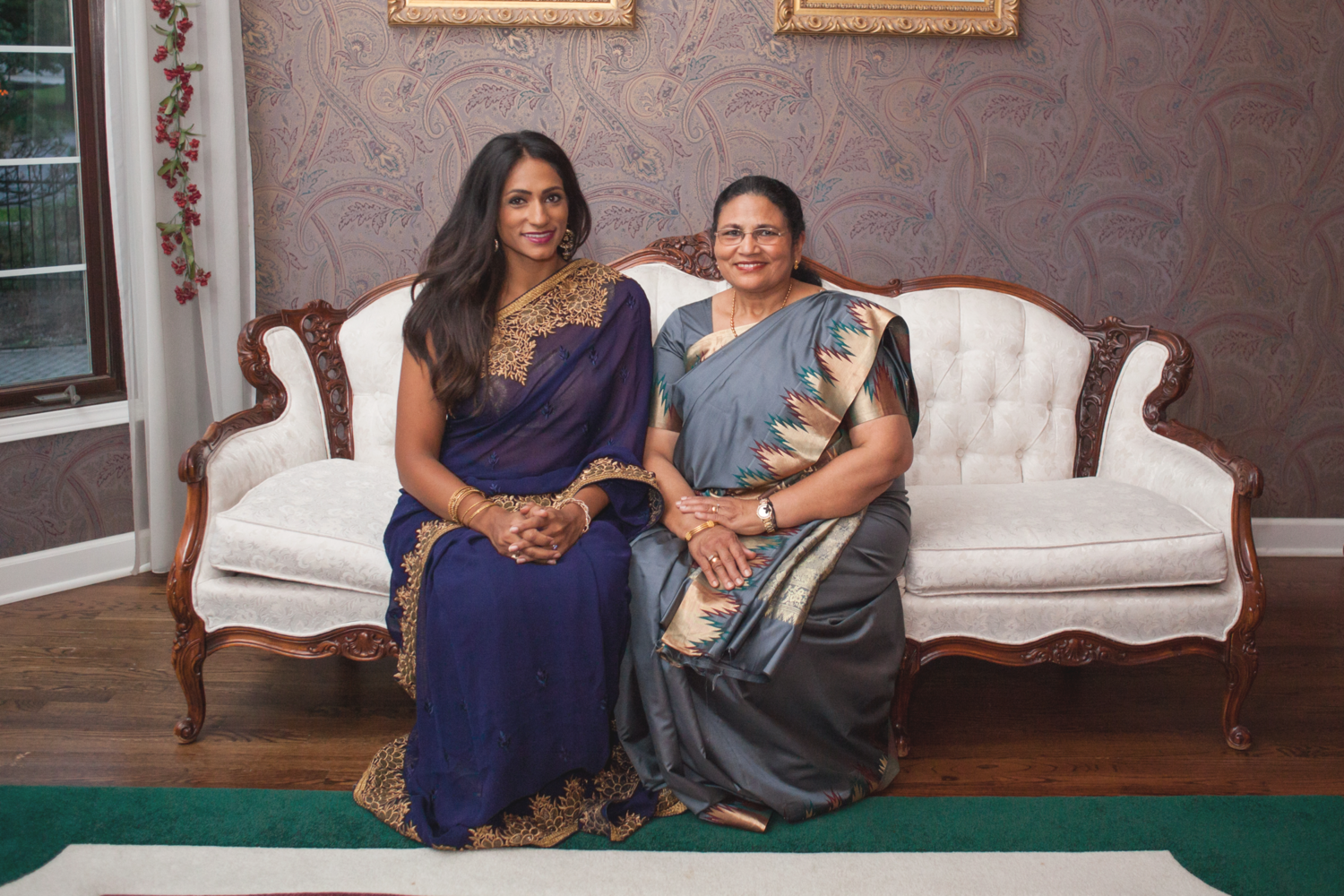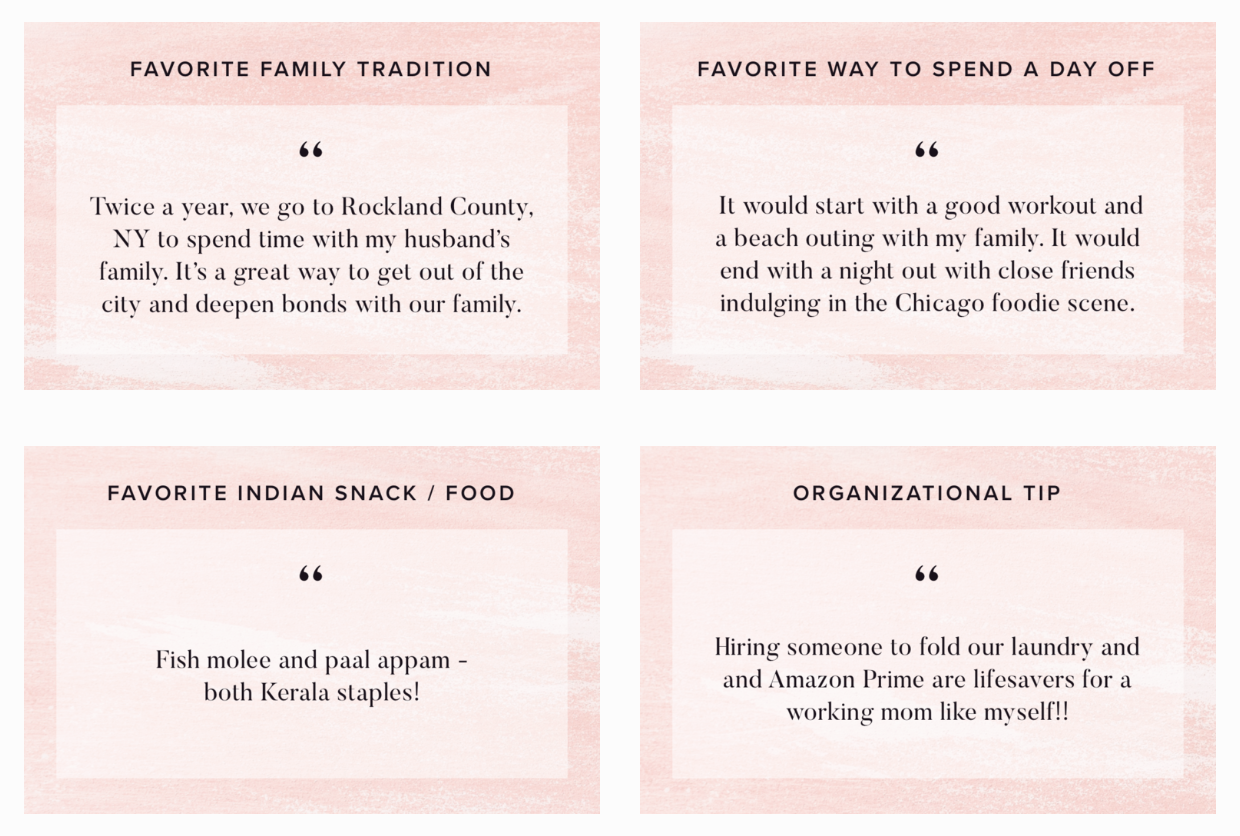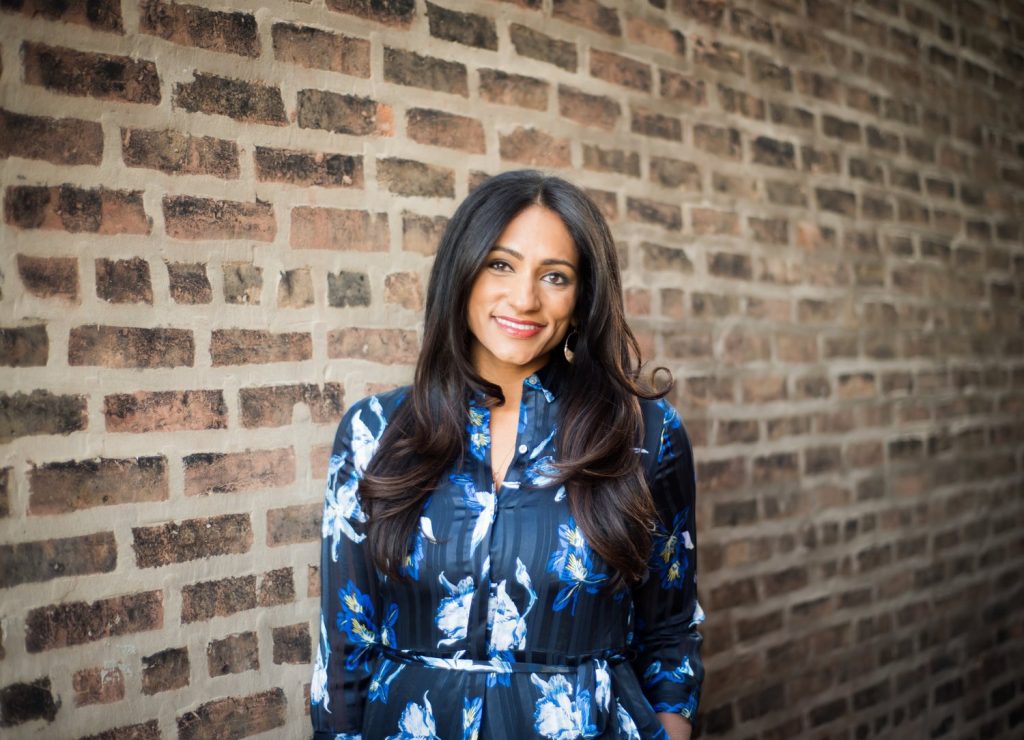
This post was originally posted on Shakti Collaborative and republished here with permission.
Cindu Thomas-George is the Founder and Principal Trainer of Shakti Diversity and Equity Training. She designs and facilitates professional development opportunities that promote equity and cultural competence in order to help create inclusive and equitable organizations for today’s increasingly diverse workforce. In her fifteen plus years of experience, she has developed a mastery of creating and facilitating meaningful and impactful learning experiences that work to empower individuals to become competent and culturally aware communicators. Furthermore, Cindu is a tenured professor of Communication Studies at the College of Lake County specializing in Public Speaking and Intercultural Communication. Read on to learn more about her journey.
The Beginning
“My parents immigrated to the United States from Kerala in the early 70s. After a few years of living on their own in Chicago, my grandparents arranged their marriage from India. In 1975, they got married in Chicago without any of their family present and soon after, moved to the suburbs where they raised my brothers and I.
We grew up without having a lot of family around. It wasn’t until I was 11 that my cousins began immigrating from India. The communities we lived in were predominantly white. My family was typically the only family of color, so I grew up being very aware of my differences. Other kids would always ask me why my parents talked funny, why my house smelled weird, and other questions that helped me to realize from a young age just how different I was.
From the time I was in kindergarten, people started calling me Cindy, and they’d actually correct me when I would tell them my name is Cindu. I’d keep saying I was Cindu, but people kept insisting that my name was Cindy. My dad owned a convenience store at the time (ironically the same year that the character Apu from the Simpson’s was first introduced) and came in to my class one day with a bunch of candy just to announce to everyone that my name was in fact Cindu, not Cindy.”
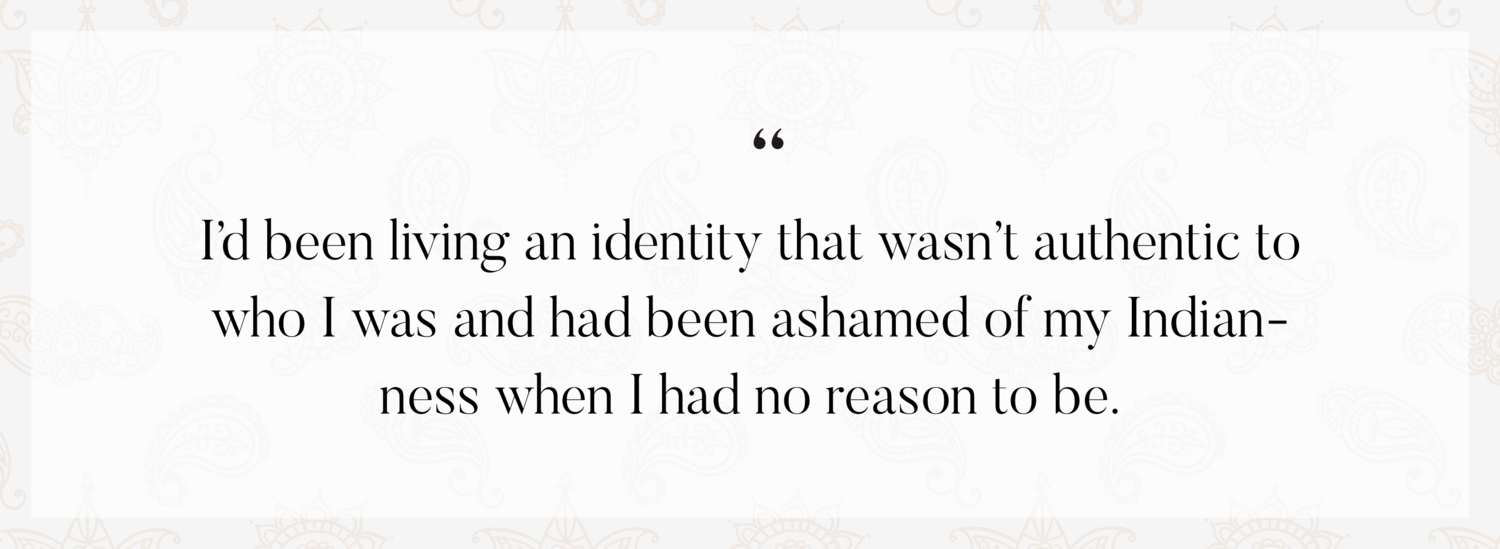
The name “Cindu the Hindu” was given to me by my classmates in the third grade. And trust me, it was not an endearing nickname and one that was meant to demean. I quickly learned to hate my name and internalized that my differences were deficient and something that I should feel ashamed of.
In sixth grade, my best friend and I plotted to change my name to Cindy and I walked into the first day of sixth grade as ‘Cindy.’ In some ways it worked to make me feel more accepted and normalized, but in other ways, it backfired. I remember on my birthday in 7th grade everyone in the lunchroom started singing ‘Happy Birthday’. I was pleasantly surprised, however it quickly became apparent that they were singing ‘Happy birthday’ just so they could say the phrase ‘Cindu the Hindu.’ It was the first realization that despite my name change, I would always be an ‘other.’
I went into high school and college as Cindy, and it wasn’t until my graduate studies when I realized the effect of what I’d been doing for the past 13 years. I’d been living an identity that wasn’t authentic to who I was and had been ashamed of my Indian-ness when I had no reason to be. Assimilating into the American culture had been more important to me growing up than understanding and embracing my Malayalee culture. I’d grown up feeling pretty distanced from what it meant to be Indian, and I’d finally started to realize it.
Looking back, I’ve realized that I struggled emotionally and mentally as I developed my identity both in social and familial contexts until I was 18. My parents were raising children in a foreign country for the first time, completely on their own, and had a lot of expectations around how their daughter should act and behave. I have a very strong and outspoken personality and was also a bit of a tomboy growing up. I wasn’t the soft spoken, dutiful Indian girl they’d expected me to be, which created a lot of friction between us. When I left for college, I experienced a freedom that allowed me to begin my path of self discovery which strengthened my confidence and sense of self. It wasn’t until a decade after I left for college that I returned home to Chicago.”
From Social Work to a Love of Teaching
“I always knew I wanted to help people, so I decided to major in Social Work. My parents were always supportive, but tried to negotiate with me, worried that I wouldn’t make enough money in the field. But at the end of the day, they gave me the freedom to figure it out on my own.
A year in to the major, I ended up taking an Intercultural Communication course which changed my life. One of the first activities in the class was to share our name and the story behind it. It was the first class that felt directly applicable to my life. It was super empowering, and I fell in love with the Communication Studies field from that moment onwards.”

“After college, I decided to go to graduate school to study Intercultural Communication and went down the path of being trained to teach Communication courses. I was so passionate about teaching and loved it from the beginning. I was extremely young (22) the first time I was in a teaching role as a Teaching Assistant and only 23 when I was given the opportunity to teach my own class. My grandfather was the only other teacher in my family and I looked up to him dearly — I believe that he’s my guardian angel. Right around the time he passed away was when I had the clarity that I wanted to be a professor. I definitely had reservations as I progressed into my teaching career as to whether I’d get a full-time position, but the profession just felt right to me and very authentic so I kept pursuing it.
As a young woman of color in higher education, there weren’t a lot of people who looked like me in my field. I didn’t really have a true mentor whom I gravitated towards and had many moments where I felt really alone in the work I was doing. My brothers and I are first generation college students and didn’t have many others paving the path for us. Because of that, I always go out of my way to mentor people today.
However, I’d say some of fellow mom friends are the best mentors I’ve had. I have a few girlfriends who are entrepreneurial, have children and are so hardworking and driven. They balance so much and make it look easy. They give me inspiration and motivation. Because of them, I’m a better mom and professional.”
Her Passion for Diversity and Inclusion
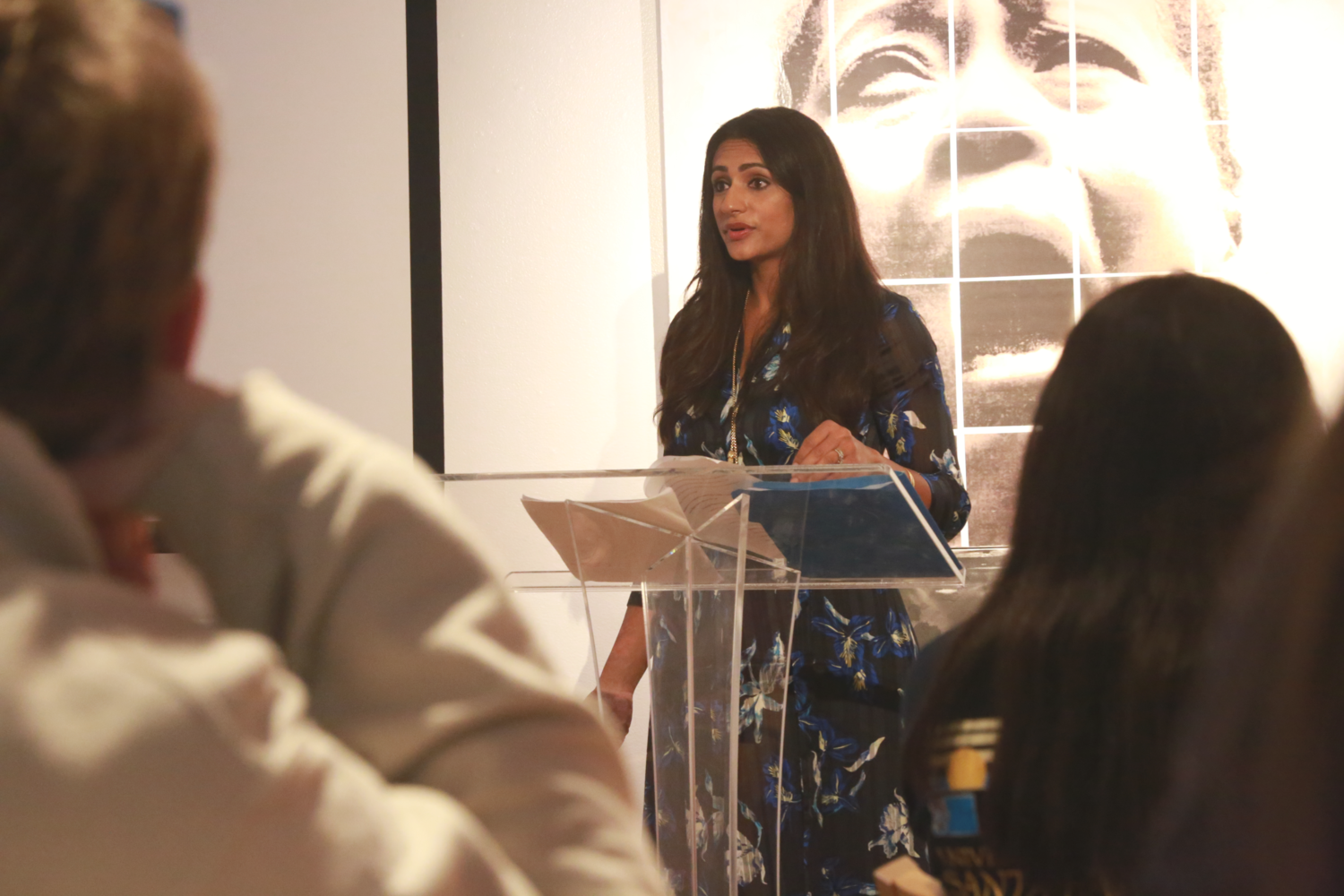
“My deep interest in diversity and inclusion training stems from my experiences of navigating life as a daughter of Indian immigrants. I’ve experienced my fair share of racism, sexism and ageism throughout my life and draw from my personal experiences. There were many times when I’d get bullied at school that the teachers seemed to look the other way. As I grew older, I realized that the teachers themselves probably weren’t racist or ignorant, but just didn’t have the skills to address the racist bullying. It was that realization that drove my passion to provide cultural competency training for educators.
About 15 years ago, a former student recommended me to an external client looking for cultural competency training which initiated my career in diversity and inclusion training. Soon after I got my tenured professorship, I founded a Diversity training program for the employees at my college, and the momentum I’d seen from that really catapulted me into this field. As I got more and more outside engagements, I decided to formally start Shakti Diversity and Equity Training, my consulting agency that aims to empower clients to become culturally responsive and competent communicators. I love that I’m able to see the organizational shifts that result from our work and the powerful impact it can have.
I think what sets me apart is my ability to apply theoretical frameworks to help stimulate organizational change. I’ve noticed that a lot of diversity trainers ride the buzz of the ‘D and I’ field or focus on trendy models that aren’t really rooted in theory, which doesn’t always result in transformational change. When I go into a workplace, I bring my breadth and depth of knowledge and expertise rooted in academia, my own experiences as a woman of color, along with my refined facilitation skills. The combination of the three along with my sincere passion is why I believe I’ve been successful.”
On Love
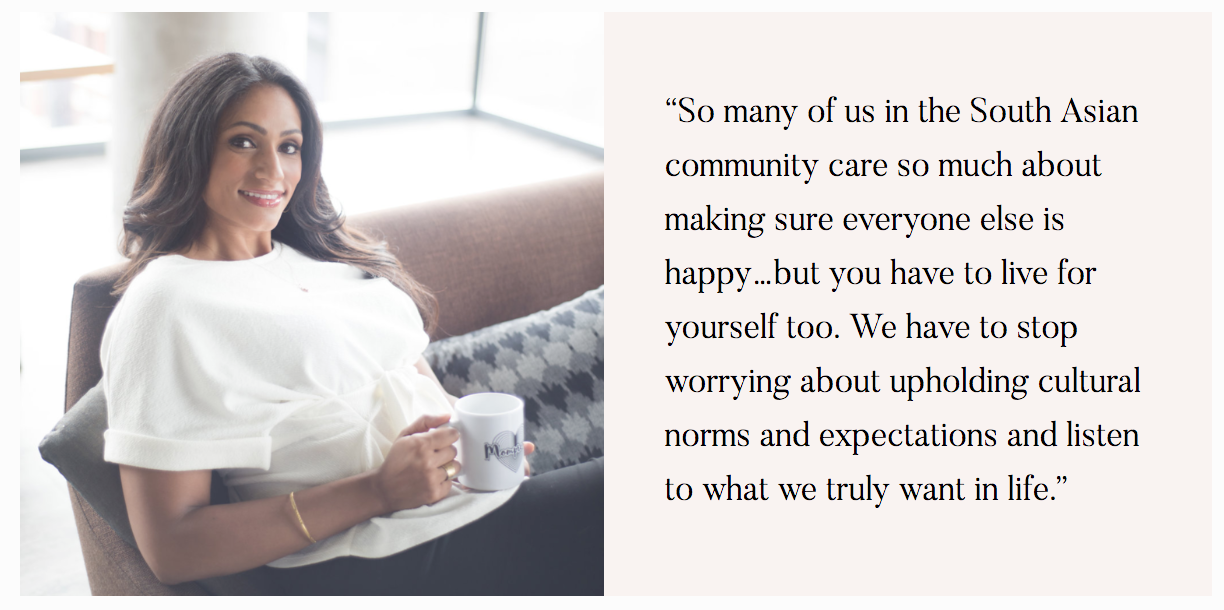
“I met my husband in California in 2000 at a National Malayalee Convention. I’ve always been one to go to the beat of my own drum and in college, was definitely a bit of a hippie chick. Jim was also an atypical Malayalee guy which is what drew me to him initially. I had never met another Malayalee guy that loved the music I did (we have a mutual love for the Grateful Dead, classic rock, and reggae), enjoyed the outdoors, and could relate to having a lot of close White friends. Even though I was only 20, I knew he was the one and early into our relationship I told my mom I wanted to marry him. My family was really happy for me and it didn’t matter to them that he wasn’t Knanaya Catholic. Honestly, nobody in my family had thought I would end up marrying an Indian person so were just overjoyed that I had found a Christian Malayalee guy.
I didn’t have kids right away — which I got a lot of grief for. I had been terrified about how my life would change once I’d have a child. I loved my freedom, my career, traveling, and my social life. Also, as someone who has always struggled with body image, I was terrified about the body changes that would come with pregnancy. I was questioned and nagged a lot by family on why we weren’t having children. It was annoying to deal with, but at the end of the day, I knew it wasn’t anyone else’s business and we had to live our life on my own terms. We had our first child when we were ready, after being married for six years.
So many of us in the South Asian community care so much about making sure everyone else is happy. We love our parents so much that we don’t ever want to let them down. We often value the happiness of the group over ourselves and we see people being selfless and making these huge life decisions to make others happy. I respect this greatly, but you have to live for yourself too. We have to stop worrying about upholding cultural norms and expectations and listen to what we truly want in life.”
On Family
“I absolutely love being a mom and my kids are my everything — but I do feel like there are career implications of being a working mom that are sometimes really hard to get through. There’s a burden we carry as women in the workplace; my husband’s career never missed a beat when we had kids but it wasn’t as seamless for me.
Before I got pregnant, I had a dream that I would be tenured before I had kids. I wanted to prove that I would be present at work and make a great contribution. So when I got pregnant before getting tenure, it was a factor that contributed to the depression I experienced during my first pregnancy. I went to a psychologist every week for pre partum depression (it’s real, we just don’t hear about it much). It really felt like I was losing myself.”
